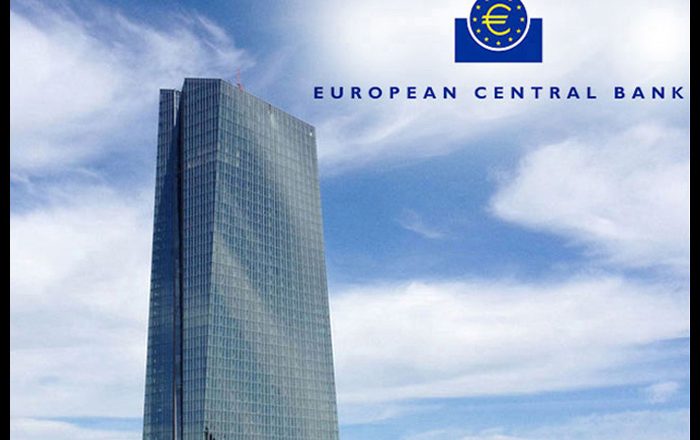ECB Delivers Bigger Than Expected 50 Bps Hike, Unveils Crisis Tool
The European Central Bank raised its interest rates for the first time in over a decade on Thursday, by a bigger-than-expected 50 basis points, and unveiled an anti-fragmentation tool called the Transmission Protection Instrument, or TPI.
ECB President Christine Lagarde had said in June that the bank would hike interest rates by 25 basis points in July and follow up with a similar, or bigger, move in September if the macroeconomic outlook deteriorated.
“The Governing Council judged that it is appropriate to take a larger first step on its policy rate normalization path than signaled at its previous meeting,” the ECB said in a statement.
“This decision is based on the Governing Council’s updated assessment of inflation risks and the reinforced support provided by the TPI for the effective transmission of monetary policy.”
The main refinancing rate was raised to 0.50 percent from zero and the deposit facility rate was hiked to zero from -0.50 percent. The marginal lending rate was lifted to 0.75 percent from 0.25 percent.
Eurozone interest rates were last raised in July 2011.
The bank said the latest move will support the return of inflation to the medium-term target by strengthening the anchoring of inflation expectations and by ensuring that demand conditions adjust to deliver its inflation target in the medium term.
The TPI can be activated to counter unwarranted, disorderly market dynamics that pose a serious threat to the transmission of monetary policy across the euro area, the ECB said.
The central bank said the scale of TPI purchases depends on the severity of the risks facing policy transmission and that purchases are not restricted ex ante.
The bank added that the flexibility in reinvestments of redemptions coming due in the pandemic emergency purchase program, or PEPP, portfolio remained the first line of defence to counter risks to the transmission mechanism related to the pandemic.
Record high euro area inflation at 8.6 percent and signs of slowing economic growth likely pushed policymakers to opt for a bigger hike in July as they might be faced with a recession by September that would leave little wiggle room for more tightening.
This week, the euro fell below parity versus the dollar for the first time in two decades. A weakening euro exchange rate adds to the already “undesirably” high inflationary pressures through imported inflation, and thus put more pressure on ECB policymakers to act aggressively.
Further normalization of interest rates will be appropriate at the Governing Council’s upcoming meetings, the ECB said.
The latest front-loading of the exit from negative interest rates allows the Governing Council to make a transition to a meeting-by-meeting approach to interest rate decisions, the central bank added.
The future policy rate path will continue to be data-dependent and will help to deliver on its 2 percent inflation target over the medium term, the bank said.
During the post-decision press conference, Lagarde said all policymakers rallied to consensus of a 50 basis point hike. She also said that there was unanimity on the anti-fragmentation tool.
Responding to a question, Lagarde said the forward guidance for September no longer holds as future policy decisions will be based on data available at the time.
“We are accelerating the exit, but not changing the point of arrival,” Lagarde said.
Policymakers assessed that the establishment of the TPI is necessary to support the effective and smooth transmission of monetary policy, the bank said.
“The singleness of the Governing Council’s monetary policy is a precondition for the ECB to be able to deliver on its price stability mandate,” the bank said.
Further, the ECB said policymakers will evaluate options for remunerating excess liquidity holdings.
The forward guidance on asset purchases and refinancing operations were largely unchanged.
ING economist Carsten Brzeski said the ECB’s policy normalization is likely to be a short trip than a long journey.
The window for a series of ECB rate hikes is closing quickly as high energy and commodity prices, supply chain frictions and the war in Ukraine are all very likely to push the eurozone economy into recession towards the end of the year, the economist said.
“We expect the ECB to deliver another rate increase by a total of 50bp before winter starts,” Brzeski said.
“Thereafter, we currently don’t expect further rate hikes.”
Source: Read Full Article

